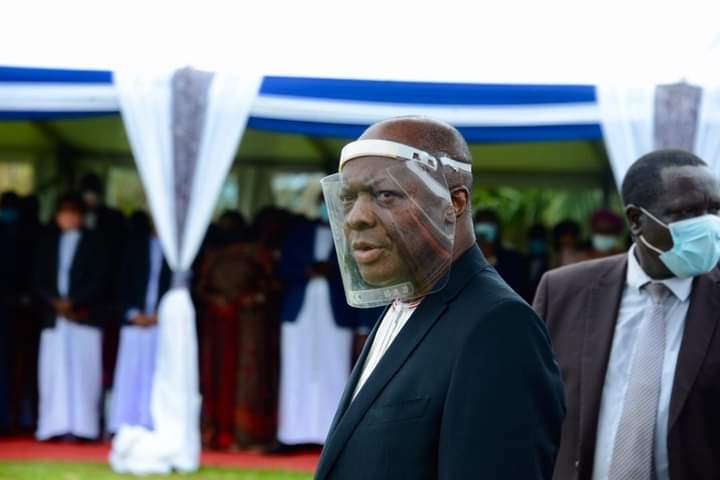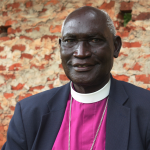My grandmother, Mary Kigongo was a proud, strong and independent-minded woman. When I say strong, I mean really strong. In my Primary school days, during third term holidays when we went to visit her in Natteta, Kayunga, she would challenge all her grandchildren to a sprint competition. We would line up at one end of the compound, where her house was and race all the way down to the other side, where the other house, and kitchen were. Unless she took pity on us, she always won those races. My mother has tale after tale of her carrying incredible bundles of cotton and sacks of coffee on her (my grandmother’s) head from the plantations in Kiseveni all the way to the market or home. Whenever we asked our grandmother about such stories, she always responded matter-of-factly, “bwekiri” (“it is as has been said”) before swiftly moving on to stories of the leopard in the neighbourhood that has been eating neighbours’ goats and would eat us if we stayed out playing too late. She was such a convincing storyteller that to this day, my sibblings, cousins and I are not sure whether this story was true or if it was told to keep us from being naughty and adventurous after dusk.
My grandmother was also the queen of indirect speech. She was never direct about what she was saying and always left it to us to figure things out.
“Oba nandi nywede ku mazzi!” she’d say (I wonder whether I should drink some water) and then look at us. It didn’t take long to figure out she expected us to get up and serve her a glass of cold water from the clay pot that she always made sure was full.
“Simanya ziweze ssawa emu?” (You don’t reckon it’s seven O’clock?)
That was our cue to stop playing and go bathe in the privacy of the banana plantation behind home.
This indirect way of saying things was also something that mum did quite a lot and she got extremely cross whenever we didn’t pick up on her intended meaning. It was also in stark contrast to what was the norm in our interactions with my paternal grandmother and people in Mbarara generally. There, people said things as they were and only spoke in parables in an attempt to short wave children out of conversations or when engaged in public speaking, when it was expected that one demonstrates their mastery of the language.
Experiencing both Kinyankore and Ganda cultures meant that for my siblings and I, we had the privileged ability to weave in and out of both norms while- at least for me- living with the burden of not quite fitting in either.
In any case, I grew up very aware of and sensitive to indirect cues both in speech and body language, especially when dealing with my maternal side of the family. Nothing was ever exactly as said. To get to the meaning of what was said, one had to constantly be alert to other cues in speech, body language and even intonation.
On March 6th, when the masaza football competition was being kicked off, the Katikkiro of Buganda presided over the ceremony. This was strange because usually, the Kabaka did so. Rumours were beginning to make the rounds that the Kabaka was unwell. In his speech, the Katikkiro said Kabaka was not able to make it because he had ‘friends of Buganda’ that were in Kenya and were scheduled to meet him, but could not come to Uganda so he (the Kabaka) had to travel to Kenya to see them. He also added, “Waliwo n’abantu abalala abakulu Omutanda baagenda okulaba e Kenya” before reassuring Buganda that the Kabaka will soon be seen in public.
Later on, a picture was shared of the Kabaka meeting President Uhuru Kenyatta. Both were seated.
A few weeks later, the Katikkiro stuck to the same narrative and even added that the Kabaka had visited the Nnamasole who was undergoing treatment in Kenya.
Then, true to the promise made, we saw the Kabaka.
And all hell broke loose.
“The Kaikkiro lied to us.”
“That man is Buganda’s worst enemy.”
“Did you see the Kabaka with hands held behind his back? That’s a sign that he is besieged and in need of rescue”
“The Katikkiro must go”
Videos of the Kabaka were shared on every Whatsapp Group I am a part of (apart from, quite interestingly, my family groups). The conspiracies began to swirl, with Baganda in platforms I am on not only calling out the government for trying to kill the Kabaka but also ‘Westerners’ for crying louder than the bereaved.
Me, I went from being slightly amused at the drama to being irked by it. The moment I read the Katikkiro’s remarks, I knew the Kabaka was unwell. I didn’t know the details, but didn’t think I needed to know anyway. What I got from the Katikkiro was what the royal family later said more directly: the Kabaka has been unwell but is recovering.
I suspect that many older Baganda picked up the same coded message from the Katikkiro’s remarks.
There is a generational gap that needs to be either fixed or understood here. Where our parents went to great lengths to come up with some of the most ridiculous indirect ways to direct people to the toilet, most people below 35 now say “the toilet is there”!
While most older women were circumspect about their feelings for a guy, the younger generation has women proposing to men, directly letting them know they would like to have sex and/or- in as direct a manner as could possibly be- taking nudes and sharing them.
We can moralise all we want about the pros and cons of either culture, but the bottom line is that they happen to be clashing.
And nothing highlights that clash quite like the Katikkiro’s public explanations about the Kabaka’s wellbeing. For the younger people, he has been outrightly lying to Buganda. To older or more traditional ones, he communicated appropriately, hinting on the issue with the class and tact expected of the Kabaka’s right-hand man.
It would probably serve those up in arms well to remember a few things; first, this situation is the first of its kind in a generation, perhaps two. No one in recent memory has had to communicate to the public about the Kabaka’s wellbeing in such dire circumstances. Rev. Amos Kasibante recently shared an interesting piece about his recollection of events when Ssekabaka Mutessa II’s body was returned to Uganda and the Katikkiro’s cryptic message. But those were different times and circumstances. There really are no hard and fast rules or guidelines about how to go about the matter.
On the other hand, in the age of social media and instant communication, older people need to realise that the previous norms of public relations no longer quite work. You can’t sit on information for long without people starting to talk. And once they start, the conspiracies spread like wildfire. What took a few days or even weeks to get around the kingdom now takes seconds.
But perhaps most importantly, there is a need to understand that in the Ganda culture generally and the Katikkiro’s comments specifically, meaning is rarely derived from the direct translation of words spoken. This is generally true of older people speaking to younger ones but especially true of kingdom officials.
Perhaps, if we all were to take a step back and examine the Katikkiro’s comments more carefully, aided now with the benefit of hindsight, we would find that all we need to know about the Kabaka’s wellbeing was there for us to see, hidden in plain sight.
And before the ‘we-need-to-know-the-details’ brigade comes at me all guns blazing, let me also say this: no you don’t. You are neither entitled to knowing the details of the Kabaka’s health nor questioning his choice of Katikkiro. When the Kabaka wants your opinion on his health- and please, don’t hold your breath for it- he will give it to you. In the meantime, if you so desperately wish him well, a prayer would be a great place to start.
Awangale Ssabasajja.
This post was created with our nice and easy submission form. Create your post!





